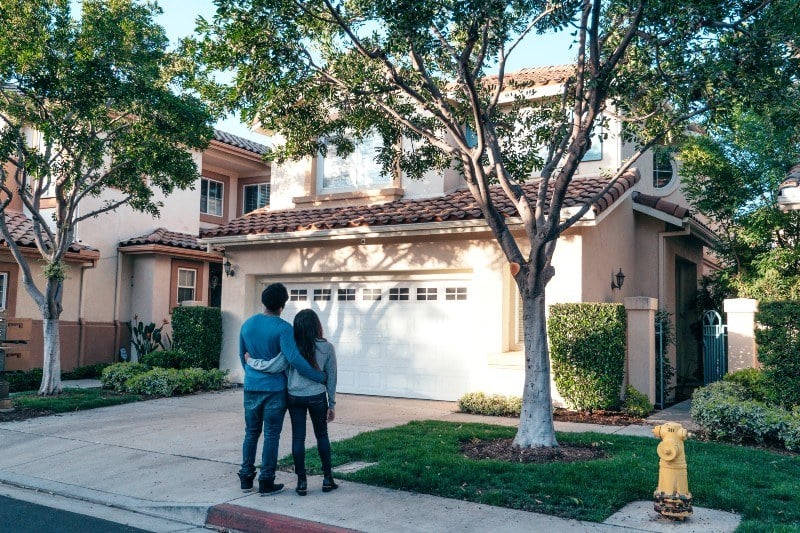If you’re the buyer, relax: you don’t need to pay Realtor fees**. In a traditional residential home sale, the seller pays for both the listing agent and the buyer agent.
In essence, your buyer agent and their advice is a free service for you. Of course, once you become a home seller yourself, you’ll be on the other side of the transaction. And buying a home isn't free: there are other fees you’ll be responsible for as a buyer. Here’s what you need to know.
Who Pays Realtor Fees
In a traditional real estate transaction, it's customary for the seller to pay the Realtor fees, including the commission for both the seller's agent and the buyer's agent. However, the specifics can vary depending on the local real estate market and the terms negotiated between the parties involved.
Here's an overview of the common practices related to Realtor fees:
- Seller Pays: In most cases, the seller is responsible for paying the Realtor fees. When a property is listed for sale, the seller typically agrees to a commission percentage, which is usually a percentage of the final sale price. This commission is then split between the listing agent (representing the seller) and the buyer's agent (representing the buyer's interests). The commission amount is usually a percentage, often around 5-6% of the sale price, but it can vary (Houwzer offers a 1% listing rate, for example).
- Buyer Pays: In some situations, the buyer may be required to pay a portion or all of the Realtor fees. This scenario is more common in certain markets or under specific circumstances. For instance, in a for-sale-by-owner (FSBO) transaction, where the seller doesn't work with a listing agent, the buyer's agent may negotiate with the buyer to receive a commission directly from the buyer.
- Negotiation and Agreement: The allocation of Realtor fees can be negotiable between the buyer and seller. Both parties can discuss and agree upon the terms of who will be responsible for paying the fees as part of the overall purchase agreement. This flexibility allows for variations in different real estate markets and individual circumstances.
It’s unusual, however, to deviate from the seller paying for commission fees in a traditional real estate transaction, so if you’re a seller, don’t go into negotiations expecting to have the option of the buyer paying.
Is it a Law that Sellers Have to Pay Realtor Fees?
It's important to note that Realtor fees are not set by law, and they can vary based on the terms agreed upon in the listing agreement and the purchase contract.
The reason that sellers pay Realtor fees is largely practicality. Buyers already have to deal with saving up for the down payment and closing costs - both of which will add up to thousands of dollars. In addition, buyers are going to want to have some money in the bank to deal with day-to-day expenses as well as unplanned-for expenses (like hospital bills or losing a job).
The average home today costs about $420,000. If buyers had to save not only for the down payment (minimum of $12,600) and closing costs (minimum $8,400) but also the buyer agent commissions ($12,600), home ownership would become even harder to access for most people. Whereas for sellers, the cost simply comes out of the large sum they are receiving for the house.
Sellers today luckily have more options than just the traditional 3% -3% split. Next generation brokerages like Houwzer and Trelora are passing on their cost savings to consumers, meaning that listing clients can save up to 50% on commission fees thanks to their 1% listing fee (with 2-3% recommended for the buyer’s agent).
Therefore, it's advisable for buyers and sellers to consult with their real estate agents and review the terms carefully to understand their specific obligations regarding Realtor fees in a particular transaction.
Buyers Pay Many Other Fees
Don’t think you’re off the hook when it comes to fees - you’ll pay plenty of them as a homebuyer. You just won’t need to worry about the commission fees.
Closing costs vary widely depending on state, local customs, and other factors (like whether or not you’ll have an HOA). At a minimum, though, you’ll need to pay for costs like the home appraisal ($400), the home inspection ($400), loan origination fees (1% of the home’s price), and more.
Once you add everything up, buyers and sellers often pay roughly the same amount in closing costs.
It's worth mentioning that this overview provides a general understanding of Realtor fees, but real estate practices can vary by region, and it's always recommended to consult with a real estate professional or attorney for advice specific to your situation.
Connect with an agent
it's free and comes with no obligation
**Note: This article was written before the Sitzer/Burnett commission changes went into effect.
.jpg)
.jpg)

